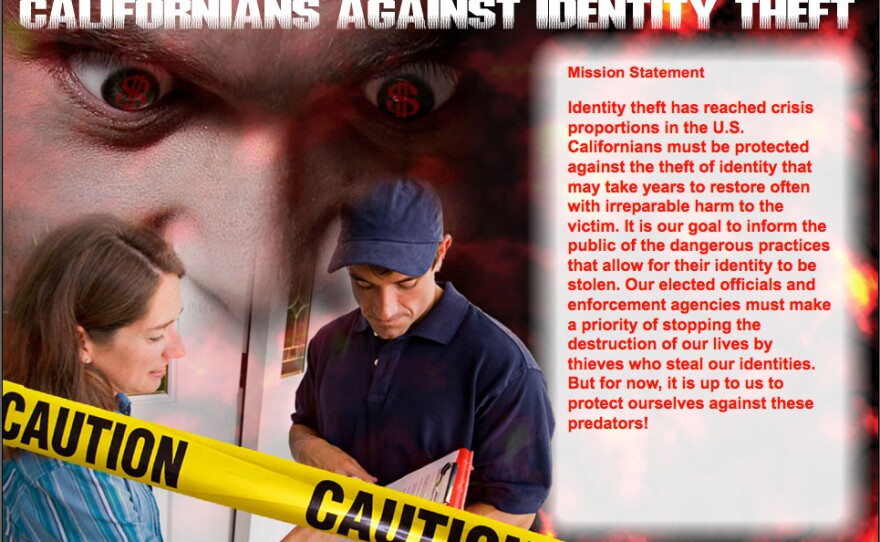Some San Diego city leaders are trying to eliminate pensions for most new city employees. To do so, they're trying to get a measure on next year's municipal ballot. Such measures require thousands of voters to sign a petition. But a labor-backed group is fighting the effort by linking a signature to the possibility of identity theft.
A political ad playing on radio stations across Southern California, for example, depicts a scene with which a lot of people living here are familiar:
"I just got back from the supermarket and those pushy signature gathers are back… ," the ad begins.
It's common to see people in front of popular stores here collecting signatures in support of various issues. If enough sign, and those signatures are later deemed valid, the issue can be placed on a ballot. This latest ad is trying to get people to think twice about signing:
"-Oh honey, please, tell me you didn't sign their petitions?
"-Well, yes I did. Is there a problem?
"-You know you put yourself at risk to identity theft.
"-Are you kidding me!"
The labor-backed group Californians Against Identity Theft is responsible for the ad. San Diego Councilman Carl DeMaio is one of the biggest supporters of eliminating city pensions, a move unions strongly oppose. He's filed a complaint with the state Attorney General's Office asking for an investigation into the ad and other labor activities he said are designed to disrupt the initiative process.
"I don't care whose initiative it's targeted at. It's wrong. It's deceptive," DeMaio said. "And the folks who've put this ad up should be held accountable."
DeMaio maintains labor unions are afraid his measure will pass if it does make it to the voters.
"And so what they're trying to do is scare Californians and San Diegans into not exercising their initiative rights under the Constitution," the councilman said.
Roger Salazar, spokesman for Californians Against Identity Theft, scoffed at DeMaio's complaint: "We feel that it's without merit and it'll be dismissed."
Salazar said people who sign petitions should be cautious.
"I think we have every right to broadcast our views about the sordid history and potential future abuses that are inherent in California's signature gathering process," he said.
Salazar points to paid gatherers forging voter signatures and to people's political-party affiliations being switched without their knowledge.
But still, the process is widely used on both ends of the political spectrum.
Vladimir Kogan studies voter trends at the University of California, San Diego. He said the chances of your identity being stolen through the signing of a petition are slim. A lot of the information signers give is already public record, Kogan noted.
"So, for example, on my computer I have a database of all the voters in San Bernardino County," Kogan said. "I not only have their addresses and birth dates, I know if they have a cat or dog. I know what language they speak at home. I know how many kids they have. I know how old their kids are."
But Kogan said it wouldn't be a bad thing if the ad gets people to think more critically about what they're signing. He added that California's initiative process has strayed far from its origins.
"If you went back 100 years and you asked the framers of the California Constitution and the framers of the initiative process what they envisioned, they would not envision paid signature collectors sitting outside of Wal-Mart," he said.
Being successful in the initiative process today, Kogan said, is largely an issue of which side has the money to either gather enough signatures. Or to block the other from getting them.






